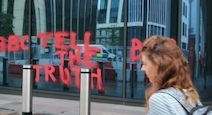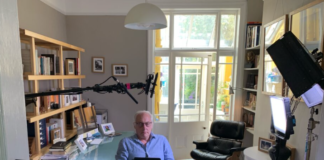- Torode to nowhere part one - 18th July 2025
- Cooking up trouble - 17th July 2025
- Numberless - 16th July 2025

The biggest broadcaster in Wales has faced huge criticism from senior staff over the low quality of its programmes, with an employee declaring that working there is “embarrassing”, it has emerged.
One critic – a former senior executive with BBC Cymru Wales (BBC CW) told The Eye: “The programmes are scraping the bottom of the barrel. They are meant to serve the nation, but the BBC isn’t doing so because the quality is so low”.

A staff member at the giant corporation, proclaimed: “A lot of people think it is embarrassing to work here. All the time we are being urged to make programmes which boost Wales, but we only seem to appeal to the lowest common denominator”.
Further concerns are revealed by us, in a story about one of its presenters, in two weeks time.
Among the programmes which have been attacked are dramas, and the news coverage (which is said not to reflect Welsh life fully), as well as many transmissions on the only all-Wales English-language radio station, BBC Radio Wales (RW).
These concerns come at a difficult time for the huge broadcaster, as it is facing enormous multi-media competition, and there is scrutiny as never before about the output in a devolved Wales.
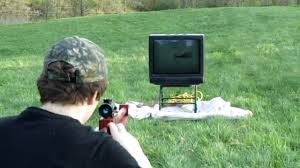
Last August the media watchdog Ofcom in a report entitled: Media Nations: 2022, said about the audience habits in the previous year: “Time spent watching TV from broadcasters in Wales fell by 12.6% compared to 2020, the largest proportional decrease of any UK nation, illustrating that the long-term trend of decline in overall viewing of broadcasters’ content, seen over the past decade, has resumed”.
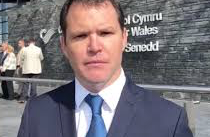
In the years before that, immense concern was also expressed about the content of on-air programming. A Welsh Government (WG) minister at the time, used social media to condemn RW saying the breakfast programme “just can’t deliver”, highlighting his earlier criticism that it was not a “serious news programme”, and his demand for more ‘challenging’ journalism.
Lee Waters MS, the then Deputy Economy Minister in Wales wrote on Twitter about an election: “I think Radio Wales would be better off putting party leaders on a phone-in. The new style Breakfast programme just can’t deliver the type of tough interview an election campaign demands”.

In the past, Mr Waters has said publicly he is worried by what has happened and that there should be ‘serious’ as well as ‘challenging’ journalism at breakfast time on RW.
He objected, too, to the decision to drop the RW programme, Good Morning Wales (GMW) programme. Mr Waters quoted approvingly a call for “…serious, challenging journalism and consistently high-quality radio programmes which make politicians nervous…”

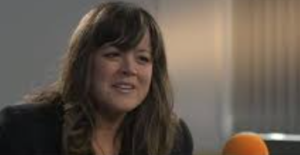
He has tweeted to BBC CW after the schedule including ‘Breakfast with Claire Summers‘ was announced, which replaced GMW: “Really concerned about this – absolutely nothing against Claire, but plenty against magazine format. We need agenda-setting news & scrutiny in this slot. You’re a national public service broadcaster. Where else are we going to get it?”.
 The objections of Mr Waters were then adopted by the WG, which has made clear its alarm at the changes to Ofcom – the external regulator of the BBC’s television, radio and on-demand programmes.
The objections of Mr Waters were then adopted by the WG, which has made clear its alarm at the changes to Ofcom – the external regulator of the BBC’s television, radio and on-demand programmes.
It said: “We feel that as a public service broadcaster, with a duty under its latest charter to reflect the nations, that they have an obligation to provide serious news and scrutiny. Just as BBC Scotland and BBC network do”.
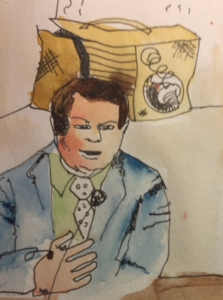
Mr Waters (himself a former producer on GMW) said the changes meant there would be “no serious news programme” broadcast at breakfast time.
There has also been criticism that the previous controversial Editor of RW, Colin Paterson, relied on dubious celebrity presenters. After we reported several years ago that angry listeners had contacted The Eye once it emerged the programme of singing star and broadcaster Aled Jones was suddenly dropped from the airwaves with RW, came news of a very different sort.
On November 4 in 2017 we showed how new schedules were about to be published by the BBC, but the popular Sunday programme of Mr Jones did not appear. At the time the BBC told The Eye, that they did “make changes to when programmes run”. However it transpired that the presenter would not be on the airwaves at all at the BBC, while the broadcaster investigated alleged inappropriate behaviour more than a decade earlier. The singer and TV host from Anglesey, who found fame at the age of 12 with his top five Christmas hit ‘Walking in the Air’, said he was “deeply sorry” for any upset caused but strongly denied any “inappropriate contact”, and a spokesman for Mr Jones said that while the matter did not relate to any broadcast work, he had voluntarily agreed not to go on the BBC while it was investigated.
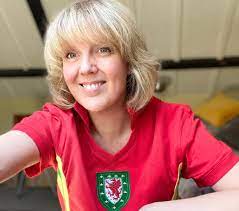
Mr Paterson’s replacement, Carolyn Hitt, faces an uphill task, because she presides over a radio station which has secured record-breaking low listening figures.
Accusations of bias, too, have been levelled at BBC CW – mainly that it favours the Welsh nationalist party Plaid Cymru (PC).
The Director, Wales, Rhuanedd Richards, who leads the BBC CW ‘Executive Teams’, is a former Chief Executive (CEO) of PC, and there is concern as well, about the neutrality of Ms Hitt, who is in overall charge of an impartial news service. She has tweeted: “I’ve voted @UK Labour all my life but today…I voted @Plaid_Cymru”, and in February 2020, she appeared as a keynote speaker at a conference of the Welsh independence organisation YesCymru (YC), and there said that she was “willing to pick up the ball and run” for independence.
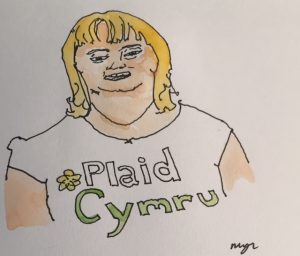
One story in the UK press about the alleged bias of BBC CW was headlined: “Plaid Cymru’s Quiet Take Over of BBC Wales”.
Condemnation within and without the troubled corporation has also followed disturbing recent events, with the judgement of BBC CW figures questioned. It was prompted by the contentious television news presenter Lucy Owen (who engaged in an extraordinary affair with Mr Paterson when his officials had commissioned a programme she fronted), posting pictures of herself relaxing in a skimpy bikini on holiday at a palm tree-fringed beach, while her viewers at home struggled to pay bills.

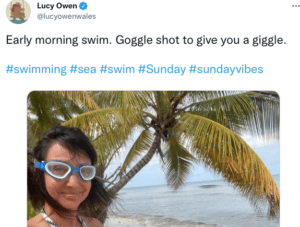 One former senior manager at the corporation said that the remarks from her were: “Inane, untimely twaddle from the anchor presenter of flagship programmes on BBCW. One can only speculate about the editorial & reputational damage to the output. Not many licence fee payers can afford excursions to the Caribbean amid the cost of living crisis”.
One former senior manager at the corporation said that the remarks from her were: “Inane, untimely twaddle from the anchor presenter of flagship programmes on BBCW. One can only speculate about the editorial & reputational damage to the output. Not many licence fee payers can afford excursions to the Caribbean amid the cost of living crisis”.
She has also used social media, to describe as a ‘crisis’ wearing odd shoes into the office when she was broadcasting the lunchtime bulletin, and asked whether anyone would notice. Mrs Owen (who has, too, been the target of comments about ‘dumbing-down’ from our sources) even included for us a shocked face emoji after the comment, and following it she published on Twitter: “Crisis over!”, because a spare pair had been found.
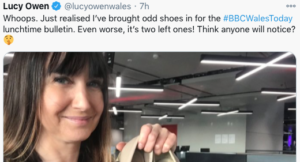 Yet Mrs Owen could, perhaps, have focused on the BBC CW website saying the same day that coronavirus/Covid-19 was the biggest cause of death in Wales that month, which many might see as a real crisis.
Yet Mrs Owen could, perhaps, have focused on the BBC CW website saying the same day that coronavirus/Covid-19 was the biggest cause of death in Wales that month, which many might see as a real crisis.
This was what she would have read instead of complaining about wearing odd shoes: “The mortality rate rose “significantly” for a second month, to 260 deaths per 100,000 people in Wales. It was also more than twice the rate in the most deprived areas compared with the least deprived area”.
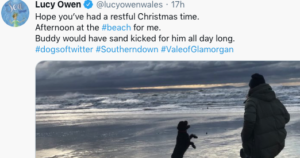 Mrs Owen had as well, tweeted over Christmas 2020 about how she had taken a trip to a beach (at Southerndown in the Vale of Glamorgan), while others were governed by strict lockdown regulations.
Mrs Owen had as well, tweeted over Christmas 2020 about how she had taken a trip to a beach (at Southerndown in the Vale of Glamorgan), while others were governed by strict lockdown regulations.
When she wrote this, the WG guidance at the time appeared clear enough: “If you are travelling away from home, you should travel to meet your Christmas bubble and return home in the course of 25 December...You should keep taking steps to reduce the spread of the virus, and this will help ensure that you enjoy Christmas Day as safely as possible.” Travel advice from South Wales Police (SWP) warned people then about going to beaches “you shouldn’t be driving to these places”.
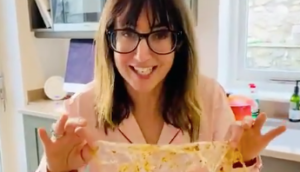
She treated us, too, to a video of how she had suffered a “turkey drama” (presumably at her South Wales home) by leaving plastic on the Christmas roast, but it cannot compare to the drama endured by the families to whom she broadcasted every night with the latest lockdown rules. Mrs Owen announced online, as she showed us what had happened: “I left a bit of the plastic on it…”
When she was presenting on BBC Wales Today (WT), programme-makers used a picture of Brighton Pavilion during coverage of the start of the hugely important Muslim month of Ramadan instead of a mosque, and the mistake was then featured in the Brighton Argus.
 One Twitter user complained: “BBC Wales showing a picture of the Brighton Pavilion and getting it confused for a mosque when talking about Ramadan is kind of f****d?”. Another wrote furiously: “Not happy they’ve used a shot of Brighton Pavilion as though it’s a mosque (presumably)”.
One Twitter user complained: “BBC Wales showing a picture of the Brighton Pavilion and getting it confused for a mosque when talking about Ramadan is kind of f****d?”. Another wrote furiously: “Not happy they’ve used a shot of Brighton Pavilion as though it’s a mosque (presumably)”.
For many staff at BBC CW, Mr Paterson’s romance with her represented a major potential conflict of interest, because officials had authorised a RW programme she hosted, called ‘Sunday morning with Lucy Owen’, and media executives both inside as well as outside the corporation have told us, that they were worried about their partnership’s possible impact on the process.
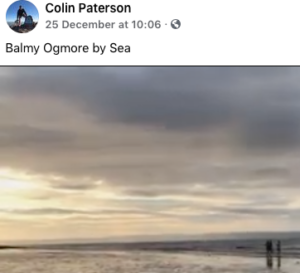
The story about it was included in a Digital Spy (DS) comment concerning RW with the message above the link saying “…the record low listening figures at Radio Wales under it’s (sic) current management (were) amplified this year by criticism from former award winning reporters and presenters”.
Mrs Owen’s former paramour, Mr Paterson, has also been in the news for the wrong reasons. He posted a video on Facebook (FB) about how he too went to the beach over Christmas 2020 – this time at nearby Ogmore, which he said was “Balmy”.

The outlook is clearly not ‘balmy’ for BBC CW, after it faced major criticism over the low quality of its programmes, and that it was “embarrassing” to be an employee there…
The memories of our Editor Phil Parry’s astonishing 39-year award-winning career in journalism (including 23 of them at the BBC), when there were no complaints about quality, as he was gripped by the rare neurological condition Hereditary Spastic Paraplegia (HSP), have been released in a major book ‘A GOOD STORY’. Order the book now!
Regrettably publication of another book, however, was refused, because it was to have included names.







